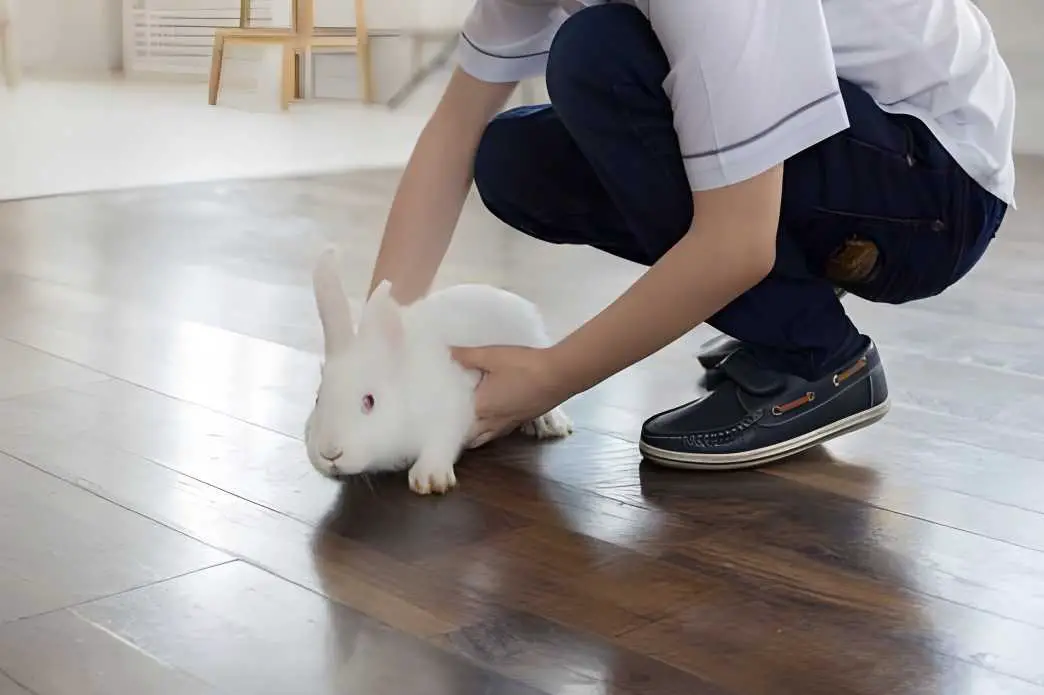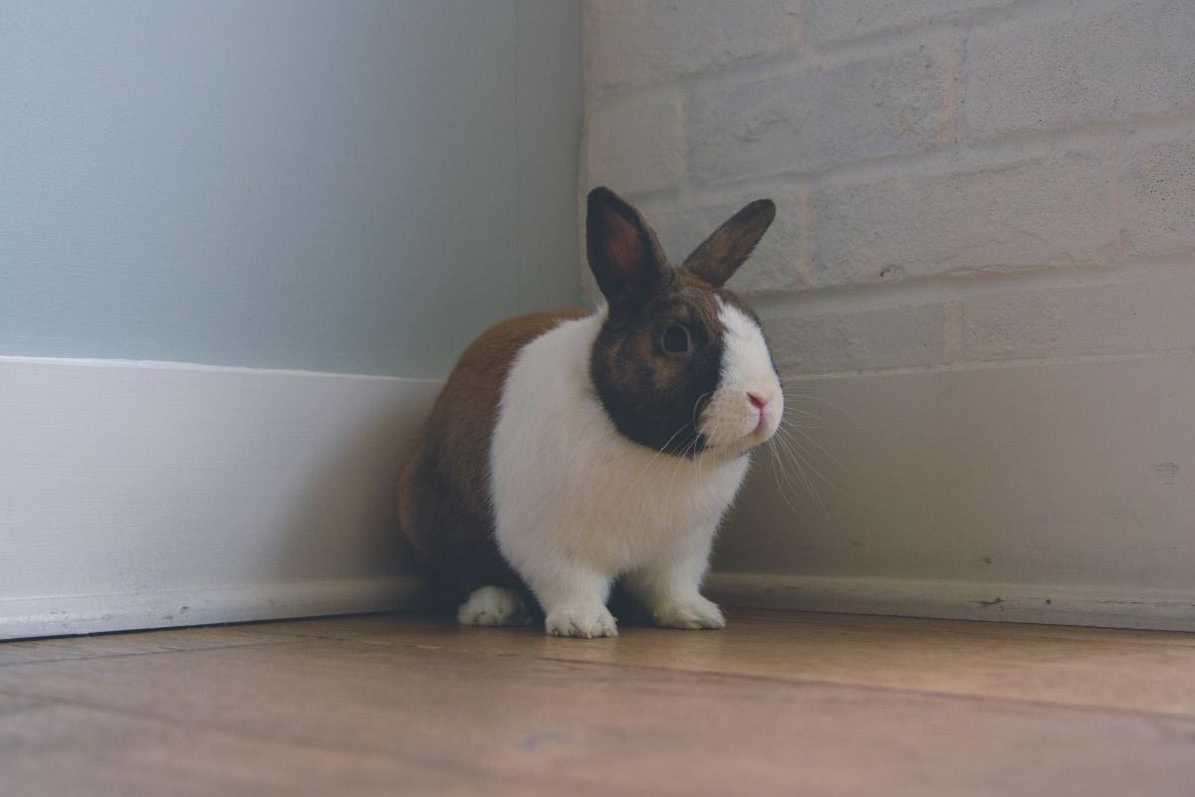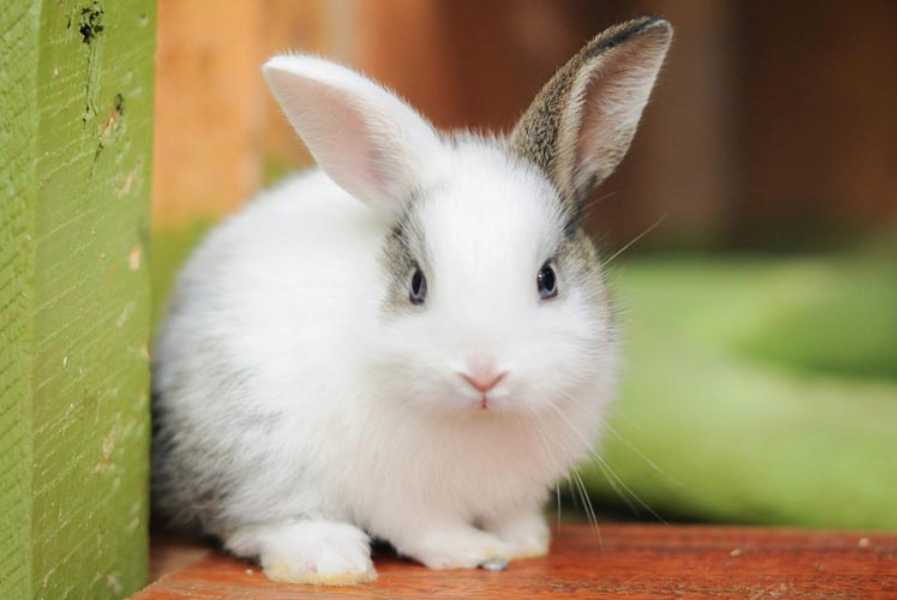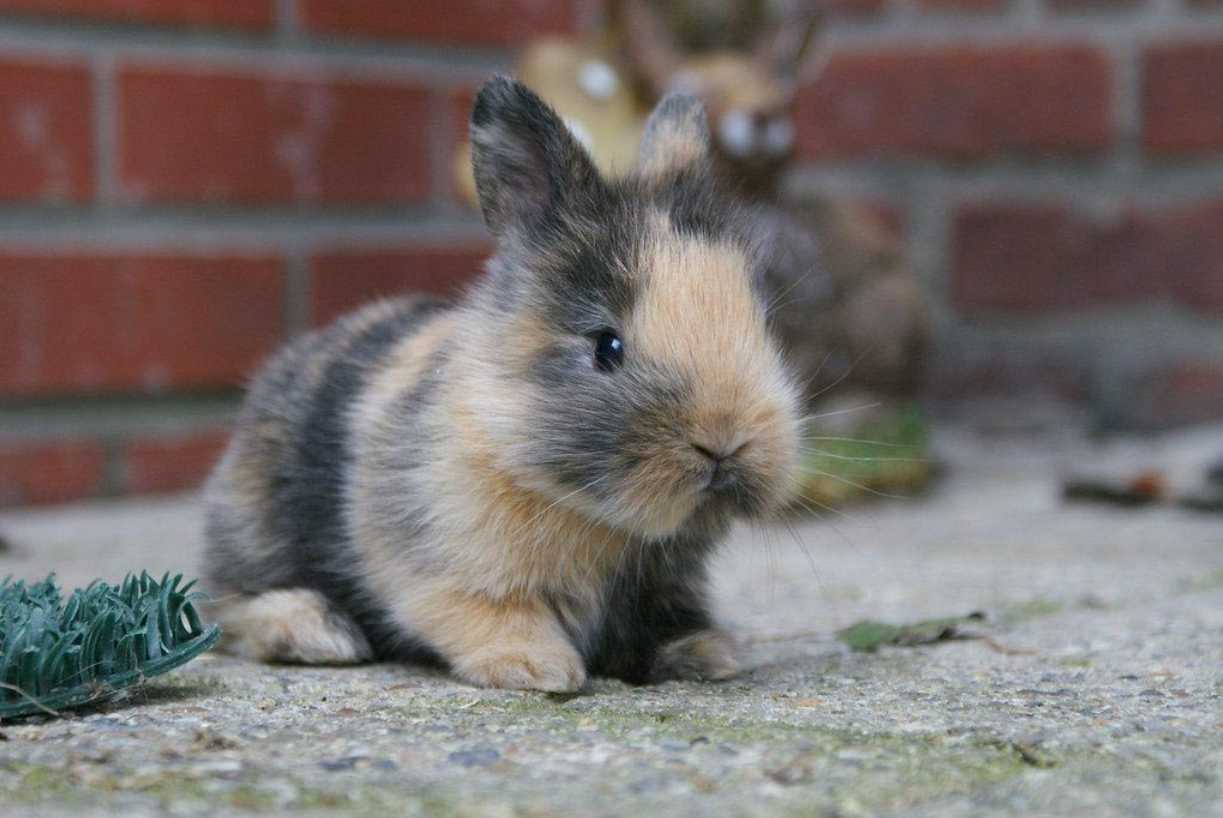Sometimes, you might think that your rabbit doesn’t like you, and we’re here to tell you that it’s completely normal. Some rabbits may feel a bit uncomfortable with you from time to time. Learn how to tell if your rabbit doesn’t like you in this article
Signs that They Like You

There are many ways to determine if your rabbit likes you or not. However, it is safe to note that your rabbit does not actually hate you, but they will feel uncomfortable with you.
Especially in the first few weeks, or even months, you will probably feel like your rabbit doesn’t like you. Check out the following signs indicating that your pet wants you.
Laying down close
It’s essential to note that not all rabbits can flop down and lay near you. It takes a certain amount of trust and comfort before a rabbit can enjoy lying down in areas near you. This act shows that they are relaxed whenever you’re near and enjoy your company.
Circling your feet
One way of telling if your rabbit likes you or enjoys your company is if they hop around your feet in circles. This movement shows that they are happy and excited to see you. It’s their way of showing their appreciation towards you and your company.
Purring
You may not hear it every time, but rabbits purr, especially if they feel safe or happy. If your rabbit purrs at you at every chance they get, trust me, they love you.
Lap Sitting
You can say that your rabbit adores you with all they have if they sit on your lap of their own accord. Lying next to you is already a big testament to how much your rabbit loves you; what more does lap-sitting say?
Chinning
An interesting fact about rabbits is that they have scent glands under their chin. If they rub their chin on something, it’s like claiming it or marking it as their own. If your rabbit rubs their chin on your feet, legs, or hands, this shows that they are very fond of you.
Binkies
For those who may not know, “binkies” is a term used to describe a rabbit’s joyous jump. You may notice your rabbit doing this sometimes, especially when they are delighted. If your rabbit does binkies when you’re around, it’s safe to say that they adore you with all their might.
Reasons Why They Hate You

After tackling the signs in which your rabbit shows that they like you, it’s now time to figure out the possible reasons why your rabbit may not like you or feel comfortable around you. Read the following reasons to see if you did some of them maybe once or twice.
Too loud
Rabbits are not fond of loud sounds. So if you are making too much noise, chances are that your rabbit will get irritated and feel uncomfortable. Keep your volume down so that your rabbit won’t hate you.
Other animal smell
Suppose you approach your rabbit while smelling like other animals. They might feel uncomfortable with you, and you’ll notice that they stay as far away as possible from you. This is because rabbits have a great sense of smell.
Too much holding
Rabbits are animals that don’t like being held too much. They usually feel scared and hopeless whenever they are lifted in the air. If you like cuddling too much, it’s time that you learn to not do it as much as you want to so that your rabbit won’t feel uncomfortable with you.
Trauma
Suppose you are adopting a slightly older rabbit. They may have some unpleasant scenarios with their past owners that have caused trauma to build up. Know about your rabbit’s past to understand their behavior.
Move too much
Rabbits don’t like people who are fast on their feet and too energetic. If you move too much, your rabbit will feel uncomfortable with you. Try to slow down whenever they are around so they won’t get confused easily.
Pay no attention
If you observe them closely, you’ll know that rabbits appreciate every ounce of attention that you give to them. Ensure that they are given enough love and care because they can sense if you are uninterested in them, which they will reciprocate.
Territorial
Another territorial behavior that a rabbit has is its safe space or area. They might consider you a threat during the first few weeks, resulting in an uncomfortable relationship between you. Give your rabbit enough space until they feel comfortable with it.
Signs that They Don’t Like You

Once your rabbit starts feeling uncomfortable with your presence, you will surely see one of the signs we will mention below.
Although it isn’t a clear indication that your rabbit hates you, it tells every rabbit owner that you are doing something that your rabbit doesn’t like. To know more, read the list below.
Crouching
Sometimes, you’ll notice that your rabbit is crouching down or sitting close to the ground. If your rabbit does this, a key indication is that they feel very uncomfortable with your presence around them. Despite their broad field of vision, certain postures can make it difficult for them to recognize familiar individuals right in front of them.
Cold Shoulder
One of the easiest ways to find out if your rabbit isn’t liking you at the moment is by observing their behavior towards you. If they give you the cold shoulder, you are probably 100% in the wrong. Your rabbit may bite or scratch you every now and then, so take note of it.
Running Away
If your rabbit is running away from you when you’re planning to pick them up, something is wrong. Although rabbits don’t typically like being held, some get used to it over time. If they suddenly don’t like being picked up, take note of the things you’ve done so that you won’t do them again in the future.
Whimpering
The most common reaction that you’ll get from your rabbit is whimpering. They will do this whenever they are scared of their surroundings, so better be prepared to give them enough space if you start hearing them whimper. Pushing them more will make them feel more agitated and stressed, harming your relationship.
Flat Ears
One of the many signs of anxiety or stress in rabbits is flat ears. You will notice this if you keep petting your rabbit. It’s a sign that they don’t fully trust you yet, and they are afraid to be near you, even if they have been living with you for the past few months.
What You Can Do

Now that you know why your rabbit may or may not like you, it’s time to consider your options on what you can do to help your rabbit feel comfortable around you.
The following are some valuable tips that you can do to ease in and earn their trust. Read each item below to know more about what you need to do.
Interact with them
The first thing you can do is to interact with them regularly. Rabbits are not that interactive with humans in their first few weeks but just let them know you are there and they are safe.
Use treats
One of the most successful tricks that you can use is treats. Everybody loves treats, even rabbits, so this one is something that will surely put their trust in you. You may start off by giving them some treats in their cage and leave the room. This will make them anticipate your presence because of the treats that you will be bringing to them.
Be gentle and give them space
In handling your rabbits, you need to be extra careful and gentle with them. If you are rough and quick with your actions, they may feel scared and anxious. Just give them enough space to roam around and make themselves comfortable. They will slowly learn to be okay with having you around.
Train them to be comfortable around you
Another thing that you can do is by making them get used to having you around. You can try to offer them treats or food and not leave the room right after. Just make sure that you have a safe distance from them, and they won’t feel too overwhelmed with having you in the same room.
Maintain their trust
The last trick you should know of is maintaining a rabbit’s trust. Once your rabbit warms up to you, you need to do everything to keep them happy and well adjusted to living with you. If you want to know more tricks and tips, you may also check this video below.
Summary
Rabbits may be uncomfortable with you from time to time, but understand that it doesn’t mean they don’t like you. Many factors can cause this discomfort, so just be patient and understanding. We hope you learned how to tell if your rabbit doesn’t like you from this article.